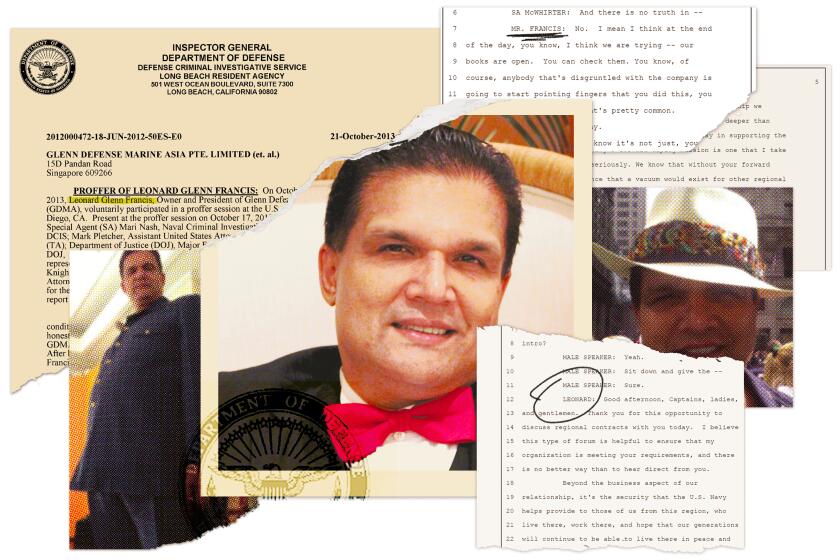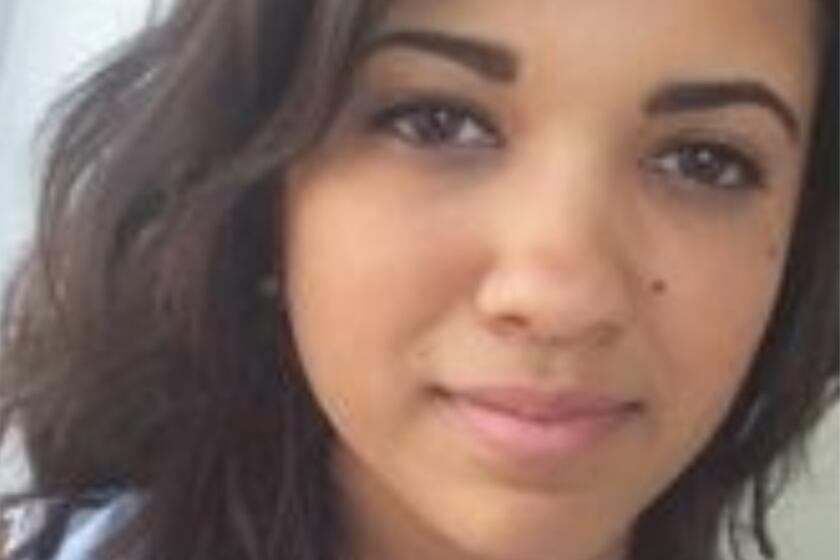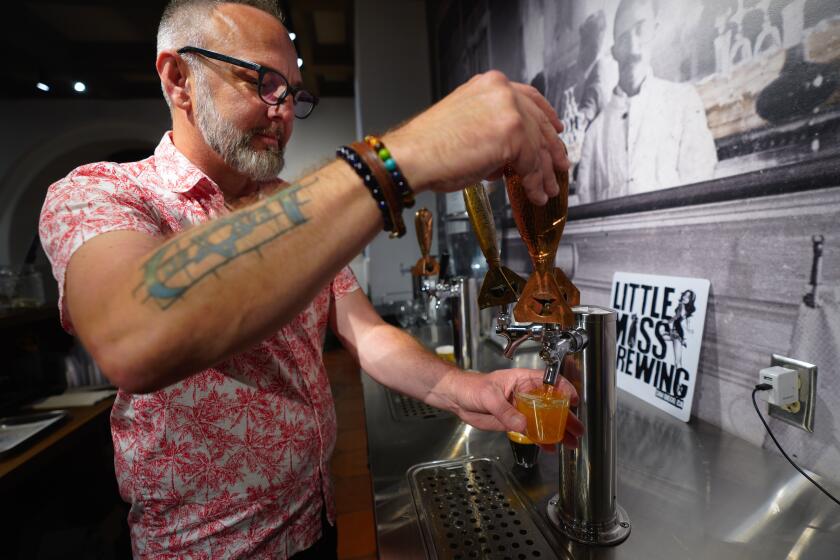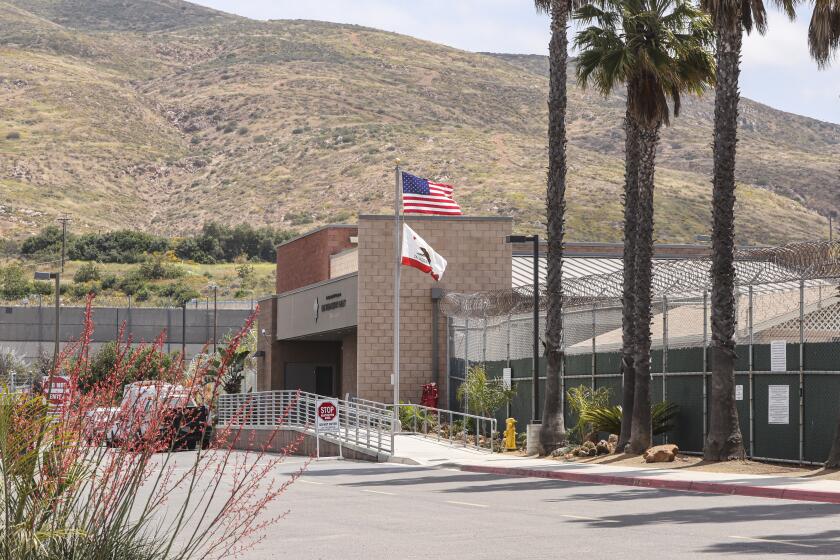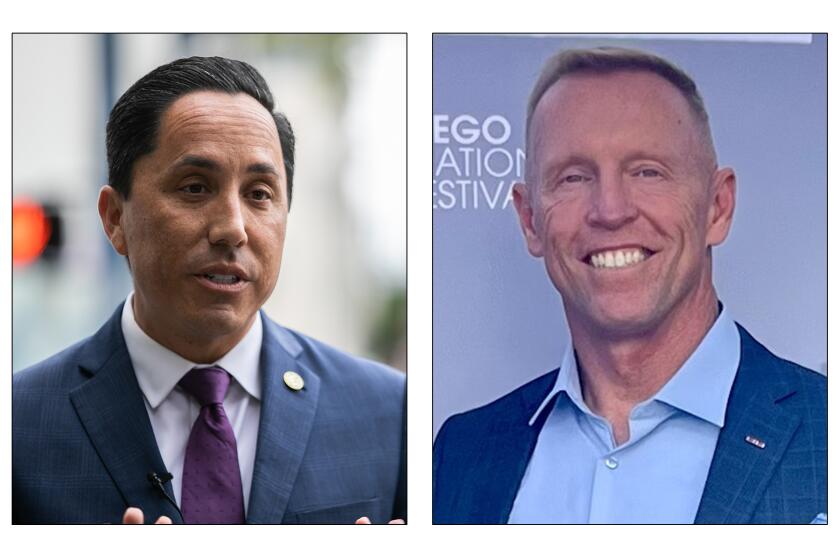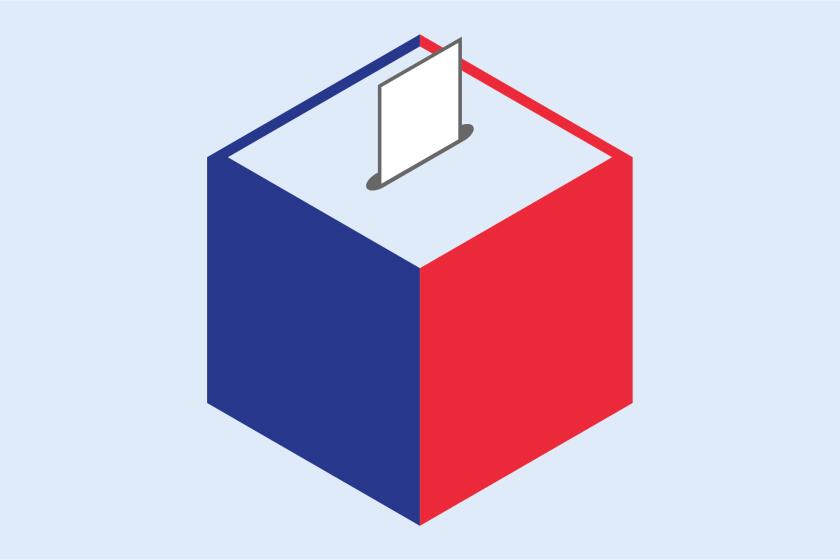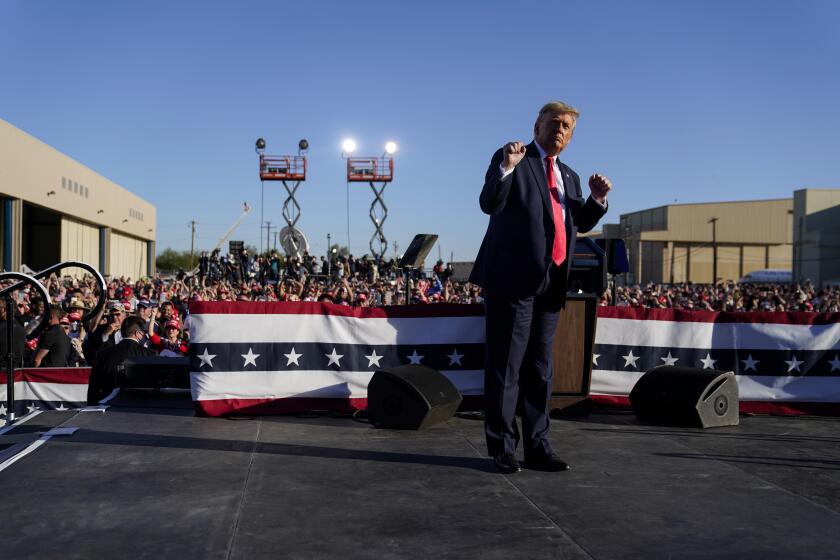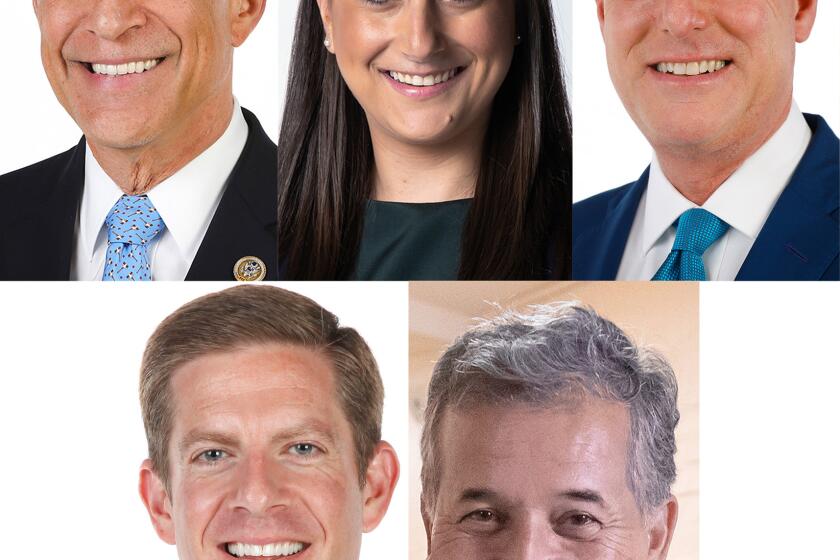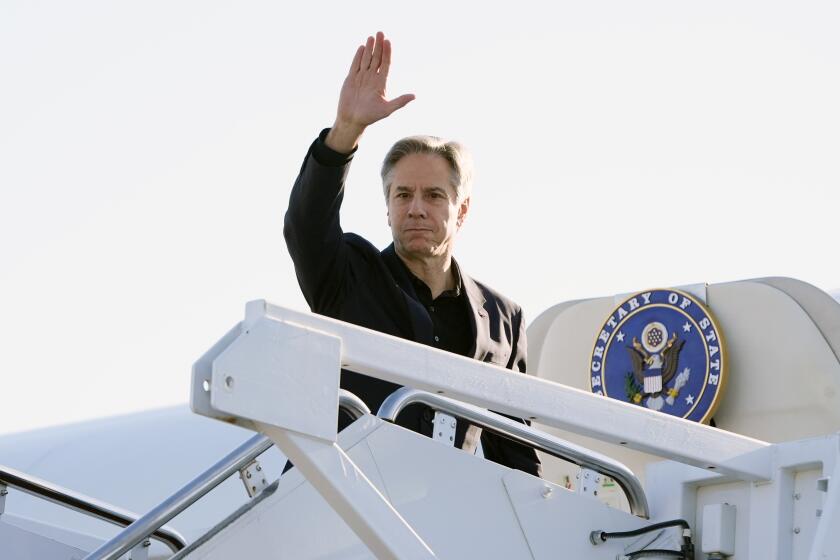Judge tentatively denies dismissal of Trump U. suit
A federal judge strongly indicated Friday he would allow a lawsuit to move forward against Republican presidential nominee Donald Trump by former customers who contend they were defrauded by his defunct real estate program, Trump University.
U.S. District Court Judge Gonzalo Curiel issued a tentative oral ruling from the bench at the start of a hearing in San Diego on a motion to dismiss the case by Trump’s lawyers. The ruling came a day after Trump accepted the GOP nomination at the Republican National Convention in Cleveland.
A formal written ruling is expected later, and it seems unlikely Curiel’s tentative order would change. The judge seemed unpersuaded by arguments from Trump lawyers made after the judge announced his preliminary ruling.
Curiel said that plaintiffs had met the legal requirements to move the case forward and have a jury decide if, as the judge put it, Trump “participated in a scheme to defraud” people who signed up for the seminars, some at a cost of about $35,000.
Trump’s lawyers were seeking to convince Curiel to dismiss one of two class action lawsuits connected to the Trump University real-estate training. Daniel Petrocelli, Trump’s lawyer, has argued that while Trump was involved in drawing up the concept for the business and the materials, he left it to subordinate executives to implement the plans.
“He did not run Trump University,” Petrocelli said Friday. He said that the fraud issue in the case revolved around the marketing materials used to promote it, and there was no evidence that Trump directed or had specific knowledge what “the marketing people running this company” were doing.
Plaintiffs lawyers Jason Forge countered that when questioned in a deposition for the case, Trump said he didn’t know of any piece of marketing materials that he did not personally approve. Forge also said that Trump admitted in the deposition that a 2 1/2 minute promotional video he appeared in extolling the program was made with the specific purpose of getting people to enroll.
The lawsuit at issue Friday was filed in 2013 and is a nationwide class action brought under the civil racketeering law, or RICO. The plaintiffs say they were duped by advertising that said they would learn Trump’s secrets from “hand-picked” instructors at an elite university. Trump owned 92 percent of the business and, plaintiffs said, was closely involved in formulating the marketing materials and other aspects of the business pitch.
The suit could be costly for Trump, since under the civil RICO laws, plaintiffs who win can get three times the amount of damages awarded.
Among other things, Petrocelli has also argued that the marketing materials promising customers would learn Trump’s secrets from instructors he approved of was nothing more than “classic examples of sales puffery common to advertising everywhere.”
He said there’s no evidence Trump had an intent to defraud students but instead believed they were getting a quality product, based on positive reviews students gave.
Petrocelli told Curiel that allowing the case to go forward under the racketeering law was a “gross over reach” of the law’s intention.
“Are we going to do a RICO case on ‘hand-picked’ and ‘secrets’?” he asked. But Curiel was skeptical, noting that the evidence so far showed that Trump has “an ongoing role” in the marketing plan.
Trump’s lawyers also want Curiel to undo the class action status granted in the lawsuit, which is set to go to trial in November, after the election. Such a decertification of the class would require individuals to sue the business mogul one at a time, a lengthy and expensive process.
Curiel had approved of the class-action designation in a ruling in October 2014. But Trump’s lawyers argued that evidence developed since then in deposition showed that people had varying reason for signing up for the programs — not one common reason that supports a class-action status.
Curiel said he would issued a ruling on that motion later as well.
Trump ignited a controversy during a San Diego rally in May when he said Curiel was a Mexican who was biased against him because of the candidate’s pledge to build a wall along the length of southwestern U.S. border and deport millions of unauthorized immigrants.
Curiel was born in Indiana, the son of parents who immigrated from Mexico.
In a related move, the judge has yet to issue a ruling on a motion brought by members of the media, including The San Diego Union-Tribune, to unseal videotaped depositions Trump gave in the lawsuit in December and January. While transcripts of those sessions are no longer confidential, Trump’s lawyers have tried to block release of the videos.
They argue dissemination of the sessions — amplified in the national media because of Trump’s status as a presidential candidate — would taint any jury that would hear the case.
At a hearing on July 13 Curiel appeared to be leaning toward releasing them, but gave no timetable for when he would issue a ruling.
Get Essential San Diego, weekday mornings
Get top headlines from the Union-Tribune in your inbox weekday mornings, including top news, local, sports, business, entertainment and opinion.
You may occasionally receive promotional content from the San Diego Union-Tribune.

